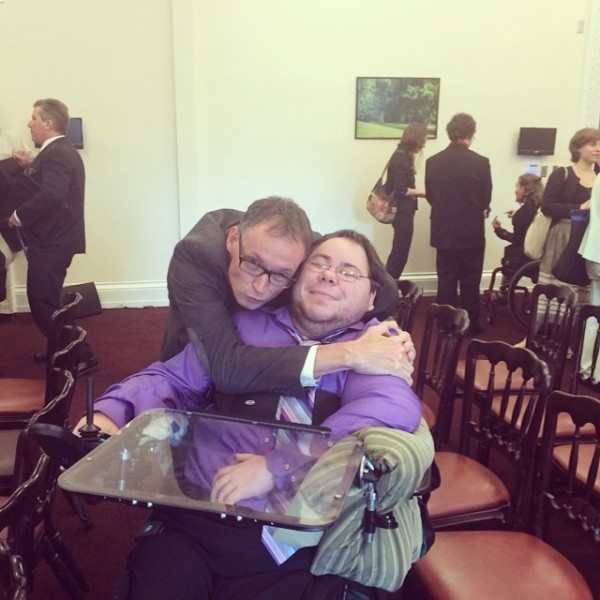Hello everyone! I wanted to post a little bit further on my thoughts on “cure mentality”. I wrote about it earlier in the month, but I really wanted to focus on a specific aspect of cure mentality. Some people with disabilities say they want a cure, and they do not understand why other people, like myself, say that disability is an integral part of our cultural being, and that we do not want to be cured.
I want to clarify a few things. First, I want to go back to how I see the definition of the term “cure” and why I feel that it is a negative term to use when discussing treatment options, for disability. When I think of cure, I think of completely wiping away a disability as though it never existed. You are the person you would be if you had never been born with this disability or disease. So many of us with disabilities do not want to be cured because our disabilities have an integral part in shaping our very identities. There is no cure for our lived experiences as people with disabilities. You cannot eradicate these experiences from us.
Rather, I propose calling these medical interventions or treatment options. I know many of us with SMA (Spinal Muscular Atrophy) would be glad to have treatment options available that lessen the severity of our progression, that help with the symptoms that come with having SMA, and that generally make our lives easier so that we can do things more independently. I would welcome these treatment options as they would greatly improve my quality of life, but also have the potential to help extend my life. No one is disputing wanting these types of treatments for muscle diseases like SMA, DMD (Duchenne Muscular Dystrophy), and ALS (Amyotrophic Lateral Sclerosis). The more severe forms often lead to premature death, and treatments could help prolong these lives. There is zero shame in wanting these treatment options.
What you cannot eradicate is the entire culture of disability in which many of us participate. We are people with disabilities. Many of us have a sense of pride connected to our disability identity. We has shared experiences with other people with disabilities that no treatment option will ever take away from us. We relate to others with disabilities. We have experienced oppression because of our disability. Many of us are, at the very least, our own personal advocates, though some of us also advocate for others with disabilities, as well.
You cannot remove my experiences as a person with a disability. That will always be ingrained within me. It has shaped exactly who I am. I believe it has made me a better, more caring, hard-working, compassionate individual. I care more about others because of my disability. I want to make the world a more accessible place, because of my disability. I am not the bratty, self-centered person I believe I would be, had I not had the experience of living with SMA.
Parents should help their children to embrace the disability culture they have been born into, simply by having Spinal Muscular Atrophy. They should never be made to feel ashamed for having SMA. They should realize that even though SMA limits them physically, they can adapt and find their own way in the world. SMA often makes us better problem solvers, because we often have to think outside the box. With the right adaptations, we can do almost anything. Still we really need to have family encouragement that embraces our disability, and I personally believe a cure mentality can hinder that. I will write about this more tomorrow, when I continue the discussion on cure mentality, specifically in relation to caregivers.
Essentially, what I am saying is, we often talk about the bad that we see when we hear the term SMA, but for those of us living with this muscle disease, this is our normal. This is who we are. No “cure” or “treatment” is going to change that, so those around us need to help us by embracing this, and celebrating us in all our disabled glory!!
I, personally, have a lot of crip pride, and I have made many amazing friendships, thanks to my disability. I wouldn’t change who I am, for anything! You should want such pride for any child with SMA!


[…] SMA Awareness Month – Day 21 – You Can't Cure Disability Culture | Dominick Evans on SMA Awareness Month: Day 3 – Cure Mentality […]